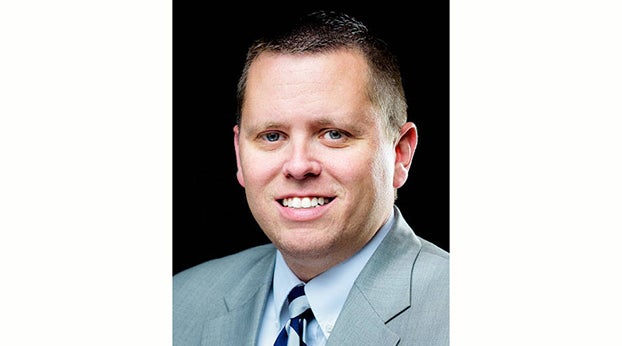Choices for Harlan mayor square off
Published 4:35 pm Tuesday, September 18, 2018

Joe P. Asher|Harlan Enterprise
Candidates Eric Perry, Drenda Crider and Joe Meadors participated in a candidate forum on Thursday focusing on the race for Harlan mayor.
During a candidate forum sponsored by the Harlan County Chamber of Commerce on Thursday, candidates for mayor of the city of Harlan fielded questions geared toward how they would approach the duties of the office if elected.
Brandon Robinson, from WYMT, served as moderator, posing questions to candidates Eric Perry, Drenda Crider and Joe Meadors.
The first question faced by the candidates asked for their view on the possibility of the city going wet. Harlan is currently considered “moist,” allowing alcohol sales by the drink in certain establishments, but package sales are not allowed.
Perry stated he does not believe his opinion to be different from the other candidates.
“I want the voters to speak,” Perry said. “You look at some of these other areas that do have alcohol sales — I think Pineville made somewhere around $170,000 in 2017. We wouldn’t make that kind of money…even if we made half of it, that’s great but it’s not going to be our savior.”
Perry pointed out the mayor would have no control on whether the city went wet or not.
Crider gave her opinion on the issue during her rebuttal.
“I’m absolutely for the town going wet,” Crider said. “We need the tax revenue.”
Crider mentioned a tourism tax was also opposed by many in the city when it first went into effect.
“It (tourism tax) has really benefited us,” Crider said. “Like Eric (Perry) said, we’re not on U.S. 25E, but everybody that comes to the hotel the first thing they ask is where can we get a beer…
They carry it in and somebody else is getting the tax revenue.”
Crider pointed out the city has dwindled over the years.
“Part of that is because we don’t have tax base revenue,” Crider said. “We have a police force to help us enforce the laws if any are broken. Why stay behind the times? We’re still behind the times. Pineville had one street and still passed us by. There’s no reason for it.”
Meadors also provided his position during his allotted one minute rebuttal.
“My position is like everybody else’s,” Meadors said. “I’m going to vote whatever my preference. If it passes, then that’s when the mayor and city council become involved because they will have to draft an ordinance at that point.”
Meadors said alcohol sales would not bring in a large amount of revenue or jobs.
“When I was young, there was not a wet city between Cumberland and Richmond,” Meadors said. “Today, Cumberland is still wet. It hasn’t saved the city of Cumberland, but they still have a few liquor stores and a couple bars maybe. Harlan’s moist, Pineville’s wet, Barbourville’s wet, Corbin’s wet and London’s wet. Everybody has passed us by.”
Robinson posed the next question first to Crider, asking what the candidate’s plan would be for the empty buildings in the city and what steps would they take to advance the plan.
“I have already discussed that with some people,” Crider said. “One of the fears we have walking downtown is some of the bricks falling off a building. The owners of the buildings need to either keep them up or the buildings need to be condemned and torn down.”
Crider mentioned some buildings have been revitalized.
“We’ve put other things in them,” Crider said. “We have the infrastructure here to go ahead and do stuff, we’ve heard the complaints about the roads, we talk about the bridge to nowhere…do we want a road to nowhere with empty building with brick falling off? If we clean up what we’ve got downtown and start there and work our way out, then we’ve got something to look forward too.”
Perry addressed the question next.
“Four years ago, I was up here preaching the same thing,” Perry said. “We have to have revitalization efforts in the downtown area…if we want to attract a business; we’ve got to be attractive. I keep hearing Dan talk about diversifying the economy, well, what are WE doing about that?”
Perry stated other cities give tax incentives to owners to improve their property.
“There’s not much I can disagree with,” Meadors said to begin his rebuttal. “My main focus would be that we have a city government that leads and tries to engage business owners and property owners to clean up their property. There is money out there. It’s not given away. You have to have a sound business plan.”
Meadors mentioned the possibility of money through the SOAR campaign.
“All of that money goes through the Department of Agriculture,” Meadors said. “You have to have a sound business plan. You have to tell them what you’re going to do, how you hope to make it a viable business, whether it’s rental property or a retail business or whatever. Ultimately, it goes back to having a city government that leads, that tries to be out front. We’ve got the tools here. We’ve got the places to do things with. We’ve got people who are interested, but they don’t think anybody cares.”




